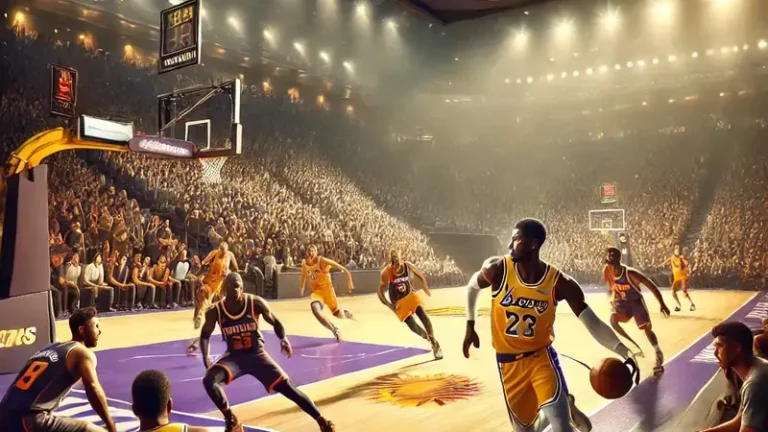Drawing is an incredible way to express interest in various subjects, and sports like basketball are no exception. Creating lifelike and dynamic drawings of basketball players, scenes, or simply the ball itself can be an engaging and fulfilling artistic endeavor. In this guide, we’ll explore drawing:_tpnhdiv3r8= basketball —a process that covers everything from basic techniques to detailed illustrations. Whether you’re a beginner artist or looking to refine your skills, this article will provide tips and techniques to elevate your basketball-themed artwork.
Basketball is a sport that embodies speed, strength, and precision. Capturing these elements in a drawing requires understanding the basics of form, perspective, and movement. As we explore drawing:_tpnhdiv3r8= basketball, you’ll learn essential skills to make your drawings stand out.
The Basics of Drawing Basketball Elements
To master drawing:_ tpnhdiv3r8= basketball, it’s essential to start with the basics. Let’s break down the individual components you’ll frequently encounter in basketball art:
- The Basketball Itself
A basketball is typically depicted as a round object with unique lines that form patterns on its surface. When drawing the basketball, start by sketching a perfect or near-perfect circle. From there, add the curved lines characteristic of a basketball. These lines are essential for making your drawing instantly recognizable. - The Hoop and Net
The basketball hoop and net add an element of context to your drawing. Start with an oval for the rim, making sure the top of the oval faces slightly toward the viewer to create depth. The net can be challenging, so keep it simple by drawing zig-zag or crisscross patterns that connect the rim to convey a realistic texture without overcomplicating it. - The Court
While not always necessary, adding the court’s lines can enhance your composition. Court lines help set the scene and create context, especially when depicting players in action.
By focusing on these components, you’ll create a solid foundation for drawing:_ tpnhdiv3r8= basketball scenes.
Essential Techniques for Drawing Basketball
Now that we have the basics, let’s dive deeper into the techniques for drawing a realistic basketball. Mastering these techniques will improve your overall skills in drawing:_ tpnhdiv3r8= basketball:
- Start with Simple Shapes
Begin by sketching a circle for the basketball. Even though basketballs are three-dimensional, starting with a flat shape allows you to establish the correct outline and size. - Add Texture with Crosshatching
To add depth and texture, use crosshatching or stippling. These techniques create the illusion of roughness on the basketball’s surface. Try applying crosshatching in the areas where shadows would naturally fall, as this creates a sense of volume. - Use Shading to Create Depth
Proper shading can make your basketball drawing come to life. Imagine a light source and apply darker tones opposite to where the light hits. Gradually blend lighter shades around the ball to create a smooth gradient that suggests its round shape. - Line Detailing
The lines on a basketball are crucial for recognizability. To maintain accuracy, lightly draw the lines and then gradually darken them as you finalize your work. These lines should appear slightly curved to follow the ball’s shape.
Practicing these techniques will enhance your ability in drawing:_ tpnhdiv3r8= basketball and make your work more lifelike and professional.
Capturing Motion in Basketball Drawings
One of the most captivating aspects of drawing:_ tpnhdiv3r8= basketball depicts the intense motion and energy of the sport. Here’s how to convey movement effectively:
- Gesture Drawing for Dynamic Poses
Gesture drawing is a technique where artists create quick, loose sketches that capture a figure’s main movements. This approach is excellent for drawing:_ tpnhdiv3r8= basketball players in action, as it allows you to express energy without getting lost in details too early. - Use of Diagonal Lines
Diagonal lines create a sense of movement. Try to incorporate these when sketching players in motion, like when they’re leaping to make a shot or running across the court. - Showing Speed and Direction
Add motion lines or a slight blur effect around specific areas of the drawing to emphasize speed. For example, adding these details around a player’s hand as they dribble the ball or around the ball itself during a jump shot creates a dynamic effect in the drawing:_ tpnhdiv3r8= basketball. - Play with Body Angles
Depicting different body angles also enhances the drawing’s sense of movement. Bent knees, angled arms, and tilted heads can all help convey action in your artwork.
Drawing Basketball Players: Anatomy and Detail
Creating detailed player illustrations is a key part of drawing:_ tpnhdiv3r8= basketball. This section focuses on capturing realistic poses and details that define basketball players:
- Understanding Body Proportions
Basketball players are often tall and muscular, so pay attention to anatomy, especially in the arms and legs. Use reference images to guide your proportions and adjust them slightly to represent the athletic physique. - Conveying Muscle Definition
To make your players appear strong and athletic, emphasize muscle contours, especially in the arms and legs. Light shading can help define muscle groups without overpowering the drawing. - Details like Uniforms and Sneakers
Uniforms and footwear are important for accuracy. Include details like team logos or jersey numbers to enhance realism. Remember to simplify these details, focusing more on shading and folds in the fabric. - Facial Expressions
Capturing expressions can bring life to your drawing:_ tpnhdiv3r8= basketball sketches. Players’ faces often show intense focus or excitement, so emphasize their eyebrows, eyes, and mouth to reflect these emotions.
Enhancing Your Basketball Drawings with Digital Tools
Digital tools offer endless possibilities for enhancing drawing:_ tpnhdiv3r8= basketball illustrations. Here’s how to leverage them:
- Software for Beginners and Experts
Programs like Procreate, Adobe Photoshop, and Clip Studio Paint provide tools for sketching, shading, and coloring. These tools make it easy to experiment and correct mistakes, allowing you to build confidence as you create. - Layering and Texturing
Use layers to separate different aspects of the drawing. For instance, keep the ball on one layer, the player on another, and the background on a third. This approach makes adjustments simpler and helps maintain a clean composition. - Applying Filters and Brushes for Realism
Many digital art programs include brushes that mimic real textures, like fabric or rubber. Applying these to the ball or player’s uniform can add a realistic feel to your drawing:_ tpnhdiv3r8= basketball.
Common Mistakes and How to Avoid Them
Every artist makes mistakes. Here are some common errors in the drawing:_ tpnhdiv3r8= basketball and how to avoid them:
- Incorrect Proportions
Basketball players have unique body proportions. To ensure accuracy, use reference images and sketch lightly so you can adjust as needed. - Overly Flat Drawings
To avoid flatness, add shadows and highlights. This technique brings depth to the drawing, making it more engaging. - Lack of Motion in Action Scenes
Without motion lines or proper poses, your drawing may lack energy. Don’t be afraid to exaggerate body angles and use gesture drawing to emphasize action. - Ignoring Background Details
While the player is the main focus, simple background elements can improve the overall composition. Consider adding light background details, like parts of the court, for context. Heve can you read: https://universalmindsmag.com/robert-shriver-football-player/
Conclusion
Mastering drawing:_ tpnhdiv3r8= basketball is a journey that combines foundational techniques, anatomical understanding, and a bit of creativity. By practicing and experimenting with different methods, you can bring the energy and excitement of basketball to your art. From simple basketball shapes to complex player poses, the skills discussed here will equip you to capture the essence of the game. So grab your tools and start creating your basketball art masterpieces!

